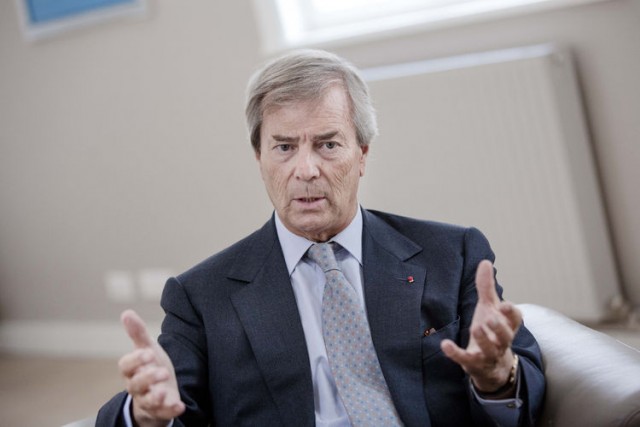Some of the world’s hottest games come out of France-based Ubisoft. With nearly 40 studios, CEO Yves Guillemot and his brothers have made quite the name for themselves in the gaming and entertainment arenas. They’ve even branched into film with 2010’s Prince of Persia, as well as the upcoming Assassin’s Creed and Splinter Cell films, not to mention plans for those set in the Far Cry, Watch_Dogs, and Ghost Recon universes.
Over the past few months, a rival has been emerging in Vincent Bolloré, the chairman of French entertainment group Vivendi. As Guillemot noted in an interview with the Financial Times, Bolloré wanted to talk “about potential synergies,” though Ubisoft, according to its CEO, is not interested.

Since the conversation took place in October, Vivendi has more than doubled its ownership in Ubisoft, now sitting just below 15%. Guillemot and his brothers only own 9% of the French studio network they created.
Vivendi has had an interesting past plagued by what seems to be fire sales of some of their properties, most recently a €35 million asset dump over the past two-years. Many of these assets were video game-related properties, which is what seems to be so troubling.
Ubisoft has made a name for itself being consistent, but also being unique and transformative. They’re always the first company to support a new hardware platform, embracing new technology and showing its partners how its passion for gaming is unending. Kinect, PlayStation Move, and most recently, the Wii U, each had Ubisoft titles launch alongside them, despite being unproven territory for either of the three big manufacturers.
With this jump into new territory, the mission of Ubisoft seems to remain one of the greatest constants in the industry; Guillemot’s company is about creating the best experiences across virtually every platform to delight and surprise gamers.
Vivendi has no such priorities. They own Universal Music Group, a small bit of Gameloft (a sister company to Ubisoft), a bit of Telecom Italia, and almost the entirety of Dailymotion. Oh, and they used to have a majority stake in Activision-Blizzard, but sold it off in 2013, after which the company grew 30%. Not exactly the most focused bunch in the business.
Ubisoft has a clear path forward, it seems, as Guillemot is aware of the work that goes into transforming one of the company’s properties into a film, for example, and notes that they would never contact Vivendi’s Canal Plus, for example.
“If we want to make a big international movie, we talk to Fox, Warner or Sony Pictures about it. They are specialists in that industry. We are not going to talk to Canal Plus.”
Ubisoft will be celebrating its 30th year of business this March, with hundreds of games published across dozens of studios in almost 20 countries.
We’ve been huge fans of the Ubisoft portfolio for a long while, placing Splinter Cell: Chaos Theory in our top ten favourite games. Seeing the vision that Guillemot and his studio directors have for the future of their games is one that excites us and needs no change. The energy in the room at Ubisoft’s E3 Media Briefing is palpable and their final surprise is always one that leaves audiences in complete shock and awe.
In the creative industry they’re in, Guillemot knows how to best show off the talents of his teams. Let’s keep it that way.

